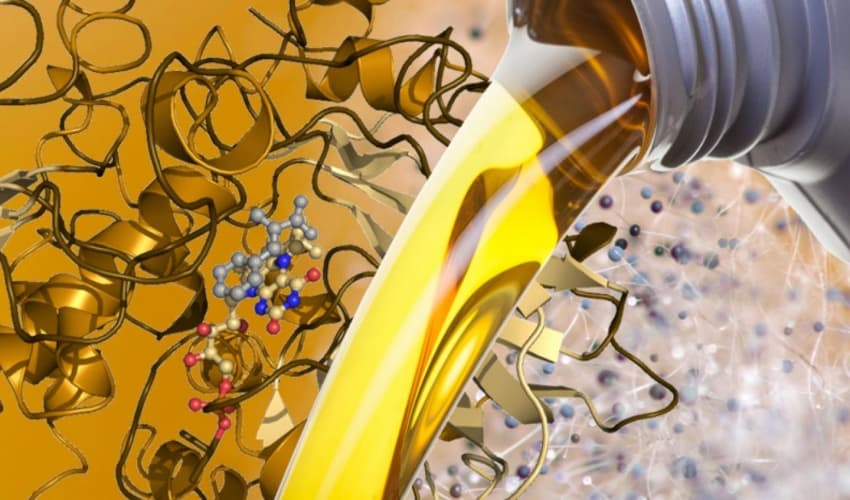According to the team, the breakthrough - Published in Nature - could ultimately lead to new bio-fuel production processes that will help reduce our dependency on fossil fuels.

Lead investigator on the project, Prof David Leys, explained that the team have identified the mechanism and structure of two key enzymes that enable common yeast mould to produce kerosene-like odours when grown on food containing the preservative sorbic acid.
The group found that these organisms use a previously unknown modified form of vitamin B2 (flavin) to support the production of volatile hydrocarbons that caused the kerosene smell. Their findings also revealed the same process is used to support synthesis of vitamin Q10 (ubiquinone).
Using the Diamond Synchrotron source at Harwell, they were able to provide atomic level insights into this bio catalytic process, and reveal similarities with procedures commonly used in chemical synthesis but previously thought not to occur in nature.
The team focussed on the production of alpha-olefins; a high value, industrially crucial intermediate class of hydrocarbons that are key chemical intermediates in a variety of applications, such as flexible and rigid packaging and pipes, synthetic lubricants used in heavy duty motor and gear oils, surfactants, detergents and lubricant additives.
“This fundamental research builds on the MIB’s expertise in enzyme systems and provides the basis for the development of new applications in biofuel and commodity chemical production,” said Leys. “The insights from this research offer the possibility of circumventing current industrial processes which are reliant on scarce natural resources.”




Nanogenerator consumes CO2 to generate electricity
The chemistry seems incredibly complex. When the article came out here in Australia the News report was really funny because they scientist/researcher...